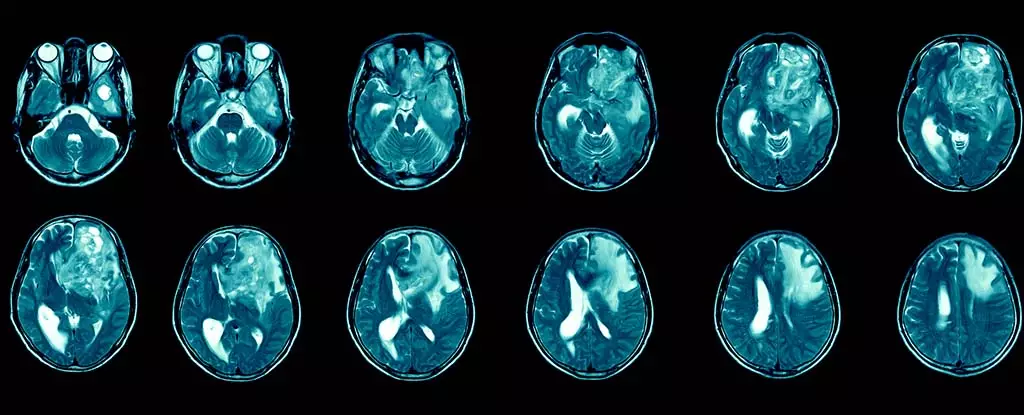Glioblastoma, classified as a grade 4 tumor by the World Health Organization, is recognized as one of the most aggressive and treacherous forms of brain cancer. Globally, the incidence rate is concerning, with approximately 3.2 to 4.2 new cases diagnosed per 100,000 individuals each year. In the UK alone, an estimated 3,200 new cases are reported annually, contributing significantly to the 12,700 cases of brain and central nervous system tumors. The prognosis for glioblastoma patients is bleak, characterized by an average survival rate of just 12 to 15 months post-diagnosis, and a mere 6.9% surviving beyond five years. This makes glioblastoma one of the deadliest cancers, not only due to its aggressive progression but also the profound impact it has on the patients’ quality of life.
Patients suffering from glioblastoma endure a range of debilitating symptoms. These can include severe headaches, seizures, cognitive disruptions, and notable personality changes. Such symptoms not only diminish the quality of life but also pose significant psychological and emotional challenges for both the patients and their families. Despite the pressing demand for effective treatments, the reality remains harsh: there are currently no targeted therapies available that specifically address glioblastoma. The existing standard treatments—surgery, radiation, and chemotherapy—often provide only temporary respite. Unfortunately, these approaches are met with limited success due to the tumor’s sophisticated mechanisms that allow it to evade treatment and the protective blood-brain barrier that hinders drug delivery to the tumor site.
Recent advancements in medical science have sparked interest in immunotherapy as a promising alternative in the battle against glioblastoma. This innovative treatment strategy leverages the body’s immune system to identify and attack cancer cells. Unlike traditional treatments, immunotherapy presents the potential for more targeted and sustained responses. While it has gained traction in treating other cancers—such as melanoma and lung cancer—its application in glioblastoma is still nascent but holds great promise. Researchers are exploring various delivery methods, including injections directly into the cerebrospinal fluid, to enhance treatment efficacy and penetrate glioblastomas more effectively.
Despite the optimism surrounding immunotherapy, significant challenges remain. One critical hurdle is glioblastoma’s heterogeneous nature, where different regions of the tumor may exhibit varying mutations. This diversity complicates the development of a one-size-fits-all treatment approach. Furthermore, historical funding shortages in brain cancer research have stymied progress, making it difficult to attract and retain researchers in this crucial area. However, recent initiatives are commencing that aim to bridge this gap by involving researchers from other disciplines and expanding the focus on glioblastoma.
As a researcher who has spent two decades exploring how the immune system interacts with cancer and chronic infections, I now pivot my focus to glioblastoma. My work examines communication pathways between immune cells and their role in neurological conditions. By leveraging this knowledge, I aim to devise strategies to overcome the barriers preventing effective treatment delivery to glioblastomas. Engaging in collaborative efforts globally, we seek to refine immunotherapy approaches specifically tailored for this deadly disease.
Although immunotherapy presents a novel pathway to potentially improve glioblastoma treatment outcomes, it is essential to acknowledge that not all cancers respond favorably to this modality. Careful monitoring is also required to manage potential immune-related side effects, such as organ inflammation and brain swelling, which can complicate treatment. Importantly, the methodology for drug delivery plays a pivotal role in determining its success; less invasive approaches, like spinal cord injections, may prove advantageous over surgical procedures.
As more funding and interest flow into the field of immunotherapy, there is a collective hope among researchers and oncologists that future breakthroughs will lead to more effective treatments for glioblastoma. Though the complexities of this cancer pose ongoing challenges, every step towards better understanding and innovative treatment modalities represents a crucial advancement in improving patient outcomes. As we continue our quest for knowledge, the battle against glioblastoma remains at the forefront of cancer research, with the potential for a brighter future fueled by the promise of immunotherapy.


Leave a Reply